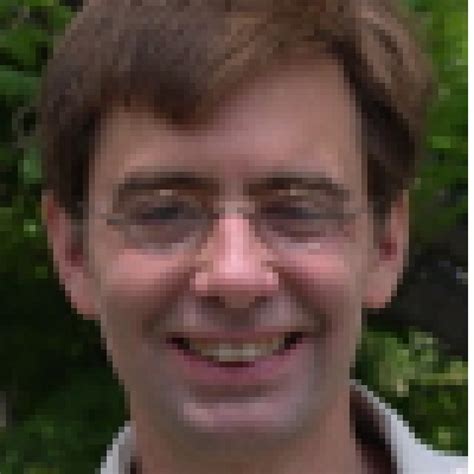A Quote by Henry David Thoreau
This whole earth which we inhabit is but a point in space. How far apart, think you, dwell the most distant inhabitants of yonder star, the breadth of whose disk cannot be appreciated by our instruments?
Related Quotes
Who can tell us of the inhabitants of this little planet that shines of an evening, called the moon?...when you inquire about the inhabitants of that sphere you find that the most learned are as ignorant in regard to them as the most ignorant of their fathers. So it is in regard to the inhabitants of the sun. Do you think it is inhabited? I rather think it is. Do you think there is any life there? No question of it; it was not made in vain. It was made to give light to those who dwell upon it, and to other planets; and so will this earth when it is celestialized
Flying has changed how we imagine our planet, which we have seen whole from space, so that even the farthest nations are ecological neighbors. It has changed our ideas about time. When you can gird the earth at 1,000 m.p.h., how can you endure the tardiness of a plumber? Most of all, flying has changed our sense of our body, the personal space in which we live, now elastic and swift. I could be in Bombay for afternoon tea if I wished. My body isn't limited by its own weaknesses; it can rush through space.
How far men go for the material of their houses! The inhabitants of the most civilized cities, in all ages, send into far, primitive forests, beyond the bounds of their civilization, where the moose and bear and savage dwell, for their pine boards for ordinary use. And, on the other hand, the savage soon receives from cities iron arrow-points, hatchets, and guns, to point his savageness with.
The frontier in space, embodied in the space colony, is one in which the interactions between humans and their environment is so much more sensitive and interactive and less tolerant of irresponsibility than it is on the whole surface of the Earth. We are going to learn how to relate to the Earth and our own natural environment here by looking seriously at space colony ecologies.
Men can construct a science with very few instruments, or with very plain instruments; but no one on earth could construct a science with unreliable instruments. A man might work out the whole of mathematics with a handful of pebbles, but not with a handful of clay which was always falling apart into new fragments, and falling together into new combinations. A man might measure heaven and earth with a reed, but not with a growing reed.
There were three classes of inhabitants who either frequent or inhabit the country which we had now entered: first, the loggers, who, for a part of the year, the winter and spring, are far the most numerous, but in the summer, except for a few explorers for timber, completely desert it; second, the few settlers I have named, the only permanent inhabitants, who live on the verge of it, and help raise supplies for the former; third, the hunters, mostly Indians, who range over it in their season.
Or is it your reputation that's bothering you? But look at how soon we're all forgotten. The abyss of endless time that swallows it all. The emptiness of those applauding hands. The people who praise us; how capricious they are, how arbitrary. And the tiny region it takes place. The whole earth a point in space - and most of it uninhabited.
No, let us not make God in our image, poor inhabitants that we are of a distant planet lost in infinite space. However brilliant and sublime our intelligence may be, it is scarcely more than a small spark which shines and in an instant is extinguished, and it alone can give us no idea of that blaze, that conflagration, that ocean of light!
We are the lucky generation. We first broke our earthly bonds and ventured into space. From our descendants- perches on other planets or distant space cities, they will look back at our achievement with wonder at our courage and audacity and with appreciation at our accomplishments, which assured the future in which they live.
See yonder another King's garden, which the King waters with his bloody sweat-Gethsemane, whose bitter herbs are sweeter far to renewed souls than even Eden's luscious fruits. There the mischief of the serpent in the first garden was undone: there the curse was lifted from earth, and borne by the woman's promised seed.
The Earth is a very small stage in a vast cosmic arena. Think of the rivers of blood spilled by all those generals and emperors so that, in glory and triumph, they could become the momentary masters of a fraction of a dot. Think of the endless cruelties visited by the inhabitants of one corner of this pixel on the scarcely distinguishable inhabitants of some other corner, how frequent their misunderstandings, how eager they are to kill one another, how fervent their hatreds.
































